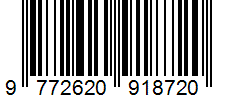Pemberian Hak Asuh Anak kepada Ayah Pasca Perceraian dalam Putusan Pengadilan Agama Kuningan No. 2037/Pdt.G/2028/Pa Kng.
(Analisis Hukum Islam dan Hukum Positif)
DOI:
https://doi.org/10.59270/mashalih.v5i01.239Keywords:
Hadhanah (Child Custody), Divorce, Islamic Law, Positive LawAbstract
Child custody is a very important issue after divorce and receives special attention in the law. In the decision of case no. 2037/Pdt.G/2018/PA.Kng, the Panel of Judges decided to give custody of a five year old child to his father, which was different from what was supposed to be. This attracted the attention of researchers because it contradicts the provisions contained in Article 105 of the Compilation of Islamic Law (KHI) and Law No. 1 of 1974 concerning Marriage Article 41. These articles emphasize that children who have not reached the age of twelve (not yet mumayyiz/point of age where children attain the ability to differentiate between good and evil, right and wrong) should have been given custody to his mother. This research aims to find out the basic considerations of the Panel of Judges as well as the views of Islamic Law and Positive Law regarding granting child custody to fathers after divorce. Qualitative methods were used in this research, using library research and documentation data collection techniques. The research results show the following: 1). The judge's basis for deciding this case used Article 41 of Law no. 1 of 1974 concerning marriage, Article 26 paragraphs (1 and 2) letters (a and b) of Law no. 23 of 2002 concerning Child Protection, as well as Article 156 letters (c) and (d) Compilation of Islamic Law, as well as the Kifayah Al Akhyar Book Juz II page 152. 2). The view of Islamic law regarding the consideration of the panel of judges in deciding the case of granting child custody to the father after divorce, when viewed from the perspective of munakahat jurisprudence, is not in accordance with Islamic law. However, from the maqashid sharia perspective, the Panel of Judges has considerations of muhafazah al-nasl/al-nasb or preserving offspring. The Positive Law view is in accordance with positive law. Even though in making a decision on this case, the Panel of Judges did not consider the order of people entitled to receive child custody as regulated in Article 156 letter (a) of the Compilation of Islamic Law, yet the Panel of Judges used its authority based on Article 41 of Law no. 1 of 1974 concerning marriage



